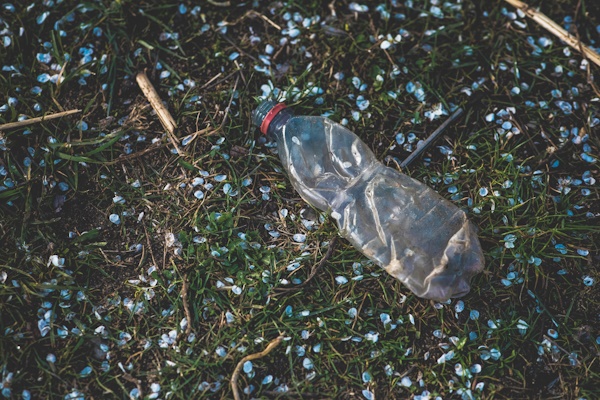- Κωδικός / Course Code: ΔΠΠ611
- ECTS: 10
- Τρόποι Αξιολόγησης / Assessment:
-
- Διάρκεια Φοίτησης/ Length of Study: Εξαμηνιαία (χειμερινό) / Semi-annual (fall)
- Κόστος/ Tuition Fees: €325
- Επίπεδο Σπουδών/ Level: Μεταπτυχιακό/ Postgraduate
Module Purpose and Objectives
ΔΠΠ 611 is a Module of Specialization (CS). The purpose of the module is to provide students with the skills which will assist him / her professionally in the field of pollution (waste, detergent technologies, environmental management).
Waste is generally a major cause of deterioration of the urban and natural environment with enormous environmental, economic and social impacts. Managing them is therefore a complex issue with economic, social and environmental dimensions. The magnitude of the problem is typical of the social reactions and conflicts that have occurred over time in many areas. Waste (solid and liquid) results from the production, transportation, processing and consumption of goods and poses risks to human health, many of which are invisible. Stakeholders must work together for rational integrated management, as it is an integral part of sustainable and sustainable development, while minimizing adverse effects on society and the environment. The aim is to optimize waste materials by maximizing recycling and energy recovery.
At the same time all the goods and services in all three sectors of the economy (primary, secondary, tertiary) require huge amounts of energy to be produced. Energy from natural resources, from biomass, from renewable sources, from nuclear fission etc. As a result of reckless waste of resources, energy consumption and waste generation, greenhouse effect, ozone hole, water pollution, pollution soil, desertification, impacts on biodiversity, the constant need for energy and food, pollution of the seas.
In line with the principles of Sustainable Development, we must contribute to the economic, environmental and socio-cultural sustainability of each region. Through this course we will try to analyze concepts and technologies related to pollution so that students are able to address some of the major environmental problems that plague both Cyprus and Greece.
Module Content
Overall, the course will cover the following topics:
- Water Chemistry
- Pollution Parameter
- Industrial Waste
- Biological Treatment
- Physical – Chemical – Biological Process
- Chemical Oxidations
- Laboratory in Liquid waste
- Solid waste management
- Solid Waste Catalogue
- Circular Economy
- Industrial Symbiosis
- Life Cycle Analysis
- Multi Criteria Analysis
- Laboratory on Solid waste
This course makes extensive references to water management, water cycle, quality characteristics, treatment technologies, water pollution, etc. The most important pollution parameters related to the control and pollution of water and waste water will be mentioned. Hereafter, the sources of eutrophication are referred to the sources of origin, the consequences - effects and the biological, chemical and physical indicators taken into account in the appearance of eutrophication.
It deals with liquid industrial waste, its origin and composition, and the parameters to be taken into account for its proper and complete treatment. The industrial waste resulting from various industrial activities, such as e.g. dairies, tanneries, mills etc. The course focuses on the operating principles of Biological Wastewater Treatment. Reference is made to the treatment methods and the steps followed for the complete removal of the pollutant load with particular emphasis on biological treatment.
It discusses and illustrates the processes used to treat waste water. Physical processes will analyze the role of grating, cartilage reduction, flow equilibration, gravity separation theory, floatation etc. In Chemical Processes the role of processes in chemical processing, chemical waste and chemical treatment will be presented. as well as the method of metal precipitation by chemical precipitation and ion exchange. In the biological processes the technique of aerobic biological oxidation, biological nitrification of denitrification will be developed.
Emphasis is placed on waste treatment technologies by presenting a range of environmentally friendly technologies that consume minimal energy and minimize negative environmental impacts. The characteristics of solid waste are analyzed and presented and the basic categories as described and coded in the European waste list. Waste composition techniques and methods will be presented. The streams of Municipal Solid Waste, Industrial Solid Waste, Demolition Waste, Special Type Waste, Hazardous and Non-Hazardous Wastes will be presented. New EU policies will focus on waste treatment based on the model of cyclical economy and industrial co-existence for waste management.
Life Cycle Assessment models will be presented and analyzed as an environmental impact assessment method. LCA is a technique of assessing the environmental impacts associated with a product, process or activity by identifying and quantifying the energy and materials used, as well as the waste released to the environment, assessing the impacts from the use of energy and materials as well and waste and recognizing and appreciating the potential for environmental improvements.
Finally, students will be presented with laboratory exercises and decision-making practices with multicriteria analysis methods in real scenarios.




